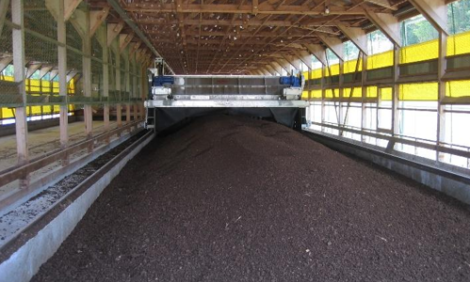



Vector vaccine addresses evolving velogenic Newcastle disease virus strains
HVT-ND vector vaccine helps protect against Genotype VII NDV strainsThis content series is designed to inspire conversations around the expanding use of vector vaccines to address prominent disease challenges facing global poultry producers and veterinarians. Leading experts will provide analysis and insights on relevant research and what they are seeing in terms of vaccination strategies that are working. This is the first in a six-part series from Zoetis.
Newcastle disease (ND) is a contagious viral disease affecting commercial poultry worldwide, resulting in performance problems and significant economic losses due to regular outbreaks, decreased egg production and high mortality.
Genotype VII velogenic Newcastle disease virus (NDV) strains, which have been frequently reported across the globe since the 1990s, are the predominant concern in Asian countries. They are also prevalent in the Middle East, and North and South Africa.1
Ensuring protection against a broad range of ND virus types is important. In unvaccinated birds, Genotype VII can cause high morbidity and mortality, reaching 100% in commercial broilers, layers and breeders, said CK Mah, DVM, global commercial development livestock lead for Asia, Zoetis.
“NDV Genotype VII is often further divided into subgenotypes, some of which are extremely velogenic (aggressive and dangerous),” Mah said. “The symptoms and lesions induced by NDV vary, but without timely and appropriate interventions, significant losses are inevitable.”
Enter vector vaccines
“The introduction of recombinant vector vaccines with a herpesvirus of turkeys (HVT) carrier made them valuable tools to veterinarians and production managers to address this evolving threat because they have proven to be effective at inducing a robust immune response,” said Sing Rong, PhD, senior research director, Zoetis.
“Several key factors are involved in the development of a good recombinant vector vaccine, including where the F protein will be inserted into the HVT genome,” Rong said. “Where you insert not only impacts the stability of the viruses, it impacts the efficacy so the insertion site is important.”
Other important factors include selection of the best expression cassette that includes the F protein antigen sequence, the promoter — which goes in front of the sequence to drive expression of the antigen — and a poly A DNA sequence at the end of the cassette.
“You want a strong promoter to have good antigen expression, but you don’t want it too strong,” Rong said. “If it is too strong, that can lead to instability, so different promoters have to be tried to find the best one.”
Vector vaccines do not interfere with maternal antibodies, and in the case with Poulvac® Procerta® HVT-ND, onset of immunity is seen at 19 days of age.2,3
Genotype VII protection confirmed
“With the launch of the latest ND vector vaccine in 2020, Zoetis studied the vaccine’s ability to address NDV Genotype VII as a stand-alone vaccination protocol or in combination with other live or killed ND vaccines,” Rong said.
The culmination of that work is captured in a white paper demonstrating how the Zoetis ND vector vaccine Poulvac Procerta HVT-ND can be integrated into vaccination protocols for ND management.
Three studies demonstrated critical NDV Genotype VII protection, including the Poulvac Procerta HVT-ND vaccine:4-6
- Can be used as part of a multiple vaccination strategy to help alleviate production loss and mortality in chickens challenged with ND at 21 and 28 days of age.4
- Can be used as a stand-alone program or as an addition to an existing commercial vaccination protocol either administered in ovo or subcutaneously.5
- Can provide protection under most velogenic NDV challenges, while the addition of an inactivated ND vaccine may be more beneficial during high velogenic NDV challenge times of the year.6
These studies provide more insights that will help veterinarians enhance protection against Genotype VII as they tailor vaccination plans according to regional challenges.
For more information, contact your Zoetis representative or visit www.PoulvacProcerta.com.
| References | ||||
|---|---|---|---|---|
| 1 Dimitrov KM, Abolnik C, Afonso CL, et al. Updated unified phylogenetic classification system and revised nomenclature for Newcastle disease virus. Infect Genet Evol. 2019;74:103917. | ||||
| 2 Data on file, Study Report No. B815W-US-18-964, Zoetis Inc. | ||||
| 3 Data on file, Study Report No. B815R-US-18-A46, Zoetis Inc. | ||||
| 4 Sasipreeyajan J. Efficacy of Recombinant HVT-ND Vaccine Against Virulent Genotype VII NDV Challenge in Broiler Chickens in Thailand. 2022;TI-08604. | ||||
| 5 Abdul Rahman Omar, Nik Mohd Faiz Bin Nik Mohd Azmi. Efficacy of Poulvac® Procerta® HVT-ND Against Challenge of Velogenic NDV Genotype VII in SPF Chickens in Malaysia. 2022;TI-07080. | ||||
| 6 Sultan HA. Efficacy of Procerta (HVT-ND) Against Challenge with Velogenic NDV Genotype VII.1.1 in Commercial Broilers in Egypt. 2022;TI-09157. | ||||









